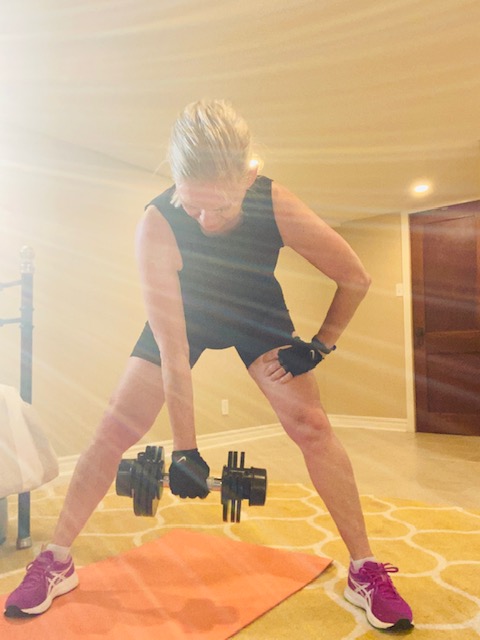As the 100th episode of my radio show and podcast Go-To Grandma hits the airwaves on July 8th, I’m reflective of the grandparent advice I’ve received from my over 300 guests on the show, as well as my own experiences as a grandma. When I started this show I had two grandsons, aged 21 months and 3 months. Entering into Season 3 of the show, those grandsons are now 3 ½ and 2, plus I have a brand spanking new granddaughter, born in May, 2023.
With each of my grandchildren I’ve been lucky to spend the first few weeks with them, as the family adjusts to life with yet another newborn. And I’ve learned that the grandparent lens is quite different than the parenting lens. Everything they say about the joys of holding a baby but handing it back when they poop or cry is absolutely true. But that’s just a miniscule part of the whole grandparent experience.
In the next 10 years, one quarter of Canadians will be over the age of 65, and with that, there will be a whole new batch of us grandparents around. I became a grandparent for the first time at age 56, making me one of the first in my friend group. As they all start to approach those grandparent years, I’d like to suggest that they metaphorically, conceptually and philosophically attend this Grandma Boot Camp that I’ve put together. Only one component is physical, and it’s potentially the easiest part.
Grandma Boot Camp – Five Things You Need to Exercise
 Exercise 1: Your Body. When you were a young parent, even with massive sleep deprivation, you were probably able to keep up with your kids. And while people joke that a newborn baby doesn’t go anywhere, it’s because they don’t that you have to. Collecting and disposing of diapers, warming up bottles, going for walks, carrying them everywhere, as you do everything else that life involves. Even a seven-pound baby can pull on a compromised lower back or weak arms. You should be involved in physical exercise on a regular basis (talk to your doctor about what’s appropriate if this is new for you), to limber up for the increasing challenges of moving grandkids. Everything from sprinting to grab them from a busy street, to carrying them home from an extended play period at the park…where you were also able to climb a structure and maybe tackle a twisty slide.
Exercise 1: Your Body. When you were a young parent, even with massive sleep deprivation, you were probably able to keep up with your kids. And while people joke that a newborn baby doesn’t go anywhere, it’s because they don’t that you have to. Collecting and disposing of diapers, warming up bottles, going for walks, carrying them everywhere, as you do everything else that life involves. Even a seven-pound baby can pull on a compromised lower back or weak arms. You should be involved in physical exercise on a regular basis (talk to your doctor about what’s appropriate if this is new for you), to limber up for the increasing challenges of moving grandkids. Everything from sprinting to grab them from a busy street, to carrying them home from an extended play period at the park…where you were also able to climb a structure and maybe tackle a twisty slide.
Exercise 2: Controlling Your Mouth. Please don’t forget and always remember that your kids are the parents of your grandkids, and as such, hold the keys to the grandparent kingdom. Of course there are going to be parenting methods and strategies that they employ that you didn’t, and that you might not agree with. But guess what? Doesn’t matter. They are the boss, not you. That old “what happens under my roof” backfires when you’re under their roof. Respect their parenting choices and don’t criticize them. It’s hard enough having kids; don’t be a source of negativity for them. If they ask for advice on a specific issue, give it, shut up, and then wait for the next time they ask…and they might not ask again depending on your last words of wisdom.
Exercise 3: Limits to Your Budget. It’s so easy to buy buy buy when you have grandkids. From clothes to toys to equipment to services, entertainment and food, we want to spoil them a little bit while at the same time helping out our kids who are feeling the pinch of the cost of raising kids. If you have the funds, check in with your kids to see what they really, really need. It might not be another electronic baby toy, but maybe a lawnmower or cleaning services. If you don’t have a lot of extra funds, contribute with your help – again, mowing the lawn, cleaning the house, or babysitting. All of these things could cost them money if you weren’t able to provide them for free.
Exercise 4: Restraint on Your Social Media. I mean, who doesn’t love a million pictures of someone else’s grandkids? A lot of people, actually, including those adorable grandkids’ parents. Make sure you check in with their parents to see what the boundaries of posting are. Are faces allowed? What about showing street signs or landmarks where they live? These are basics, but also remember to not criticize their parenting, their teachers, coaches, in-laws, family members or care givers online. This is not your role and could cause all kinds of collateral damage for your kids and relationships in their community.
Exercise 5: Your Place in Their Lives. The thing about most grandkids is that they’re kids. You’re the grown up. It’s up to you to establish the relationship you want to have with them. Of course their parents are the gatekeepers, but it’s up to you to organize the visits, stay in touch and communicate with the grandkids directly when given access, particularly as they grow older. They will get busier with their own lives, but there are ways to make sure you remain a part of it through phone calls, texting, virtual chats, and even “snail-mailing” them cards and small thoughtful gifts when you’re thinking about them. Go to their games and recitals, find out their hobbies and establish a rapport which goes beyond asking about their school grades. If you live long distance and can afford it, visit whenever possible and convenient. Make the effort. It’ll be well worth it.








